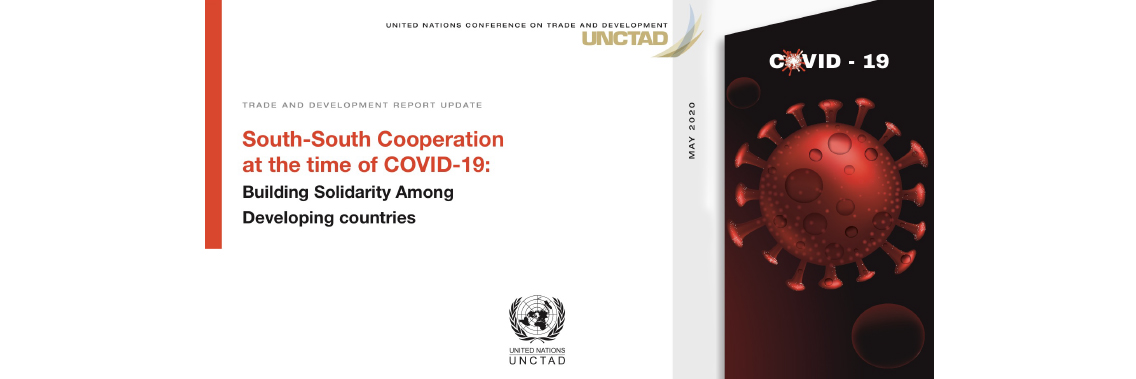The COVID-19 crisis is stress-testing the capacity of governance arrangements to deal with unexpected shocks.
Results point to considerable variation at the national level, but it’s difficult to give anything above a B minus to the response at the multilateral level.
UNCTAD’s Trade and Development Report Update sets out how South-South cooperation, though not a substitute for a proper international response to the crisis, can point towards a better future.
Economic fallout from lockdowns
As the threat to lives from COVID-19 became more apparent, countries began locking down their economies and putting together emergency support packages.
Despite these being on a scale not seen outside of wartime, the economic damage to the global economy this year will be devastating, compounded by the absence of robust arrangements to coordinate individual country efforts.
For many developing countries, where up to 90% of the workforce engages in informal activity and lockdown is a difficult proposition, the first effects of the crisis came through economic contagion before the health shock.
Some countries have found the fiscal and policy space to respond, but most have been overwhelmed by a vicious economic circle of capital flight, currency collapse, dwindling foreign exchange earnings and shrinking fiscal space.
With debt levels already at historic highs when the crisis hit, UNCTAD has estimated that developing countries will need at least $2.5trillion over the next two years to meet their external financing needs.
The response from the multilateral system to this extreme financial stress has been underwhelming, falling far short of what UNCTAD, along with many other commentators, has proposed to avoid recession turning in to depression and, possibly, another lost decade.
A blueprint for international coordination
Cooperation among countries of the South cannot substitute for the actions required by the wider international community but it can bring a degree of relief and support with recovery.
As important, it can provide a blueprint for the kind of international coordination and cooperation that will be needed to recover better than after previous crises.
With this in mind, a South-South cooperation agenda needs to build around three broad objectives: scaling-up financial resources; enhancing policy space; and building resilience.
Opportunity for health cooperation
The urgent need for solutions to COVID-19 has opened a window of opportunity for a South-South cooperation initiative in health and related areas.
Within a regional health initiative, collective research and development efforts in medicine should be the top priority in the coming years. Any medicines or medical discoveries which are important for the survival of people need to be shared widely and its access made available to all, especially to the most vulnerable countries and communities.
This highlights the importance of making the Trade-Related Aspects of Intellectual Property Rights (TRIPS) moratorium permanent, prohibiting non-violation complaints on intellectual property rights.
Ensuring food supply in times of crisis
The pandemic has also brought to the forefront the flexibility needed by countries in procuring and distributing food, especially at times of crisis.
Further, building food supply independence is another source of resilience. Most developing countries are well placed to develop regional collaboration in agricultural value chains as their economies present significant complementarities in this respect.
Regional funds and trade pacts for emergencies could help in this respect with targeted financial resources both to save their small and medium-sized producers and strengthen regional supply chains.
In response to COVID-19, the countries of the South need to strengthen the strategic partnerships at the heart of South-South cooperation and build solidarity around reforms to the multilateral architecture that push towards more inclusive global governance.
This is a crisis developing countries should not let go to waste.
Original source: UNCTAD
Published on 03 June 2020

